Every Beatles Album, Ranked
Believe it or not, obsessing over the best band in history was kind of a blast.
Everybody has a Beatles story, but I like to think mine is at least a little unique. The first real memory I have of their music was in 2009, sitting in my dad’s car on the way to karate class. As a drummer himself, my father’s emerald-green iPod Nano was a sacred item, containing vast wellsprings of the kind of music a 9 year-old couldn’t care less about (sorry Weather Report). On this particular day, however, a song came on that instantly piqued my interest. There was something so unexplainably alluring about it; a melody that moved in the exact way my brain wanted to hear. The song was “Getting Better,” off The Beatles’ 1967 classic Sgt. Pepper’s Lonely Hearts Club Band. My dad must have noticed my intrigue, because he exclaimed, “Hey, you know that’s me playing drums?”
To clarify: my dad is not Ringo Starr — but he wasn’t lying. The song that he’d played was a cover of the original; part of a passion project to re-record the entirety of Sgt. Pepper that one of my dad’s musician friends had asked him to play for. This particular cover/homage album would soon become a staple in my secondhand music listening, and I even remember Dad showing me the real version of “Fixing a Hole,” and me asking to hear his cover instead. All of this is to say: the universality of The Beatles is so deeply ingrained, I didn’t even have to hear them to fall in love with them.
When I decided to start writing this list, it was genuinely difficult to find anything to say. What hasn’t been said about The Beatles? They’re the band. There will likely never — fuck that — there will never be a bigger band. It simply won’t happen. New artists may come and reach higher heights of success, but I firmly believe no rock band is ever going to surpass The Beatles, simply because they won the metaphorical game. The music of the 20th century will forever be epitomized by their discography, and there’s no changing that whatsoever.
John, Paul, George, and Ringo. Four-in-one, one-in-four. In just seven years (for context, it’s been almost nine since Frank Ocean released an album), they achieved the peak of both commercial and critical success to a degree that audiences didn’t even know existed at the time. From their early days as a mop-topped quartet of smiling heartthrobs to their eventual dissolution as bearded, post-hippie visionaries, The Beatles story is the most exciting tale in the history of popular music.
In the weeks it took me to write this, I completed by far the most research I’ve ever done for one of these lists. Thirteen studio albums, 33 singles, five feature films, two docuseries, a novel (Ken McNab’s And In The End), and countless YouTube video essays (of varying quality). The craziest part? It never stopped being fun. Perhaps the greatest trick The Beatles ever pulled was their uncanny ability to remain ceaselessly interesting. Everything you want to know about the band — even the most minute detail of your least favorite song — can be and has been answered at some point in time.
As always, some logistical housekeeping: this list is based on the officially-canonized versions of these albums from 1987-1988. I have included the soundtrack Yellow Submarine, but not the Past Masters compilations. Remixes and remasters were not counted (let the record show, Paul’s 2003 “Naked” mix of Let It Be would be ranked higher), and neither were later compilations and live albums. Basically, if Wikipedia includes it in the official “Beatles Discography” section — it qualifies.
Now, without further ado…
13. Yellow Submarine (1969)
Reportedly, The Beatles’ ethos behind Yellow Submarine was pretty simple: “Hey, this song’s rubbish. Let’s put it on the soundtrack!” Born out of a contractual obligation (every band’s favorite thing), this “album” is really just The Beatles asleep at the wheel. Six original songs — two of which already appeared on previous records —with the second half devoted to producer George Martin’s score for the film. It’s certainly not awful (this is The Beatles, after all), but Yellow Submarine is about as non-essential to the band as it gets. Ironic, considering that the actual film is one of the most timeless and imaginative pieces of The Beatles’ cultural legacy. Still,“Hey Bulldog” and “It’s All Too Much” are fun, surprisingly off-kilter gems, and Martin’s score can be downright gorgeous at times. Yellow Submarine is definitely a must-listen for any aspiring Beatles expert, but there’s simply no promising that it’ll leave any sort of impact on your musical rotation.
Favorite Track: It’s All Too Much
12. Beatles For Sale (1964)
In the nearly two years since The Beatles had released their debut, they had spent 253 days touring. That’s not including dozens of radio appearances, interviews, TV performances, and recording two albums. Needless to say, by the end of 1964, the Fab Four were exhausted. Beatles For Sale is the time capsule of such a world-weary era, brimming with frustration but lacking the energy to fully capture said feelings. None of the band had much interest in making this album, and it shows. Despite releasing their first LP of fully original songs just five months prior, the group once again falls back on covers to fill out the emaciated track-list. The disparity between these and the Lennon/McCartney songs feels particularly egregious this time around — going from “Kansas City” to “Eight Days a Week” is enough qualitative whiplash to make your neck ache. There’s certainly flashes of excellence hidden amongst Beatles For Sale, but only the most diehard of fans are likely to care for more than a handful of tracks here.
Favorite Track: No Reply
11. With the Beatles (1963)
Please Please Me was recorded with the sneaking suspicion that it could be a success; With the Beatles was a surfboard scrapped together just in time to ride a tidal wave of success. Mere months after their debut had staked its claim at the top of the charts, The Beatles usurped their own position with a follow-up. Beatlemania was steadily picking up steam at this point, seeing the boys mobbed by teenage fans and smuggled around in disguised police vans. This is really just a lesser version of the LP that preceded it, but there’s certainly more to With the Beatles than its diminutive stature among the band’s catalog. Despite having significantly more time to record (a luxurious seven weeks as opposed to 13 hours), the lads had largely played their best hand with the originals on Please Please Me. Aside from gems like “All My Loving” and “Till There Was You,” most of these tracks make for tertiary — albeit enjoyable — fluff. Don’t let the moody monochromic cover fool you: With the Beatles is the sound of four friends who simply love being rockstars.
Favorite Track: All My Loving
10. Help! (1965)
In the rapidly accelerated life cycle of The Beatles, Help! marks the peak of their adolescence. What came across on Beatles For Sale as moody and petulant now sounds decidedly angsty — the anxious pacing of young men on the brink of a breakthrough. This is due to a few different factors: John was deeply depressed and drinking heavily, the band was thoroughly unenthused about their second feature film, and cannabis had entered into their lives in a major way. The album’s paint-job is still in line with the first half of their discography, but there’s an underlying tension to this record that seems to exclaim, “Hold on! Give us a second to think!” Just listen to the title track’s lyrical desperation, or the staggered rhythm of “Ticket to Ride,” or the flighty guitar riff on “I Need You” — The Beatles are cooking up something. The penultimate closer, “Yesterday,” gives us a clear glimpse as to what. Unexpected, innovative, and shockingly vulnerable — no self-respecting rock ‘n’ roll band would ever double-down on that sort of thing… right?
Favorite Track: Yesterday
9. Please Please Me (1963)
When George Martin recorded The Beatles’ debut LP, he was banking on a hit. What he got was an H-bomb. Turns out, four cheeky Liverpudlians were the cultural kick needed to spur a teenage renaissance that would soon shape the decade. It’s nearly impossible to conceive of Please Please Me in any sort of objective sense, but even if you erased the fact that this is the first Beatles album, it’s still a great fucking time. Ironic, considering that from a modern perspective, the sessions were hellish (13 hours straight, fighting illness, and chain-smoking countless cigarettes). To The Beatles, though, it was fairly laid-back — their usual performance schedule ran seven days a week, six hours a night, sustained only by uppers and booze. That same energy burns throughout these songs; a chomping, youthful tenacity. It’s understandably more archaic than what they’d make in the future, but early classics like “Love Me Do” are clear indicators of greatness to come. For an album so of-its-time, Please Please Me is shockingly prescient. Maybe they weren’t inevitable, but from the very beginning, The Beatles were good enough to make it seem like they simply had to be here.
Favorite Track: Anna (Go To Him)
8. A Hard Day’s Night (1964)
Few things in history of artistic expression have ever been more effective than the opening chord to “A Hard Day’s Night.” Harmonically dubious and yet screamingly clear, it’s the quintessential evocation of the sheer insanity that defined The Beatles’ life at this point. That same feeling permeates their third album: an ever-developing grapple between the thrill of superstardom and the dehumanization that comes with it. A Hard Day’s Night could have been heartless (a corporately-machinated soundtrack/film combo made to capitalize on a cash cow). Instead, the lads seized both mediums as an opportunity to further not only their own artistry, but that of pop music at large. It’s their first LP of fully original material, a definitive statement of virtuosity that’s only aided by how damn good the songs are. Lennon and McCartney depict love through the warts-and-all realities of everyday life, performed via some of their punchiest instrumentation ever. Top that off with an accompanying film in the style of cinema-verité, chock full of counter-culture ingenuity…? You start to realize just how dire things must have been for Beatles-haters in 1964.
Favorite Track: Should Have Known Better
7. Let It Be (1970)
You can tell a lot about a Beatles fan by the way they rank Let It Be. Despite being arguably one of the band’s most iconic releases, this record’s reputation is nothing if not polarizing. To make a long and already well-documented story short (just watch Get Back): in January, 1969, The Beatles got together to record a new material for a live show that would hopefully reunite the band. Instead, the sessions proved to be tense, sluggish, and acrimonious — but they still yielded a handful of tracks. The group quickly moved onto newer material (Abbey Road), and these demos eventually landed in the hands of producer Phil Spector. When The Beatles finally broke up, Spector’s mix — now titled Let It Be — was released, officially becoming the band’s final album. Understandably, it’s a bit of a mess. The sequencing is bumpy at best; Spector’s additions are hit (“Let It Be”) or miss (“The Long and Winding Road”); and there’s not even a Ringo song. There is, however, a singular charm to be found here, an intimate — borderline voyeuristic — glimpse into The Beatles as they truly were: brilliant, ambitious, hot-headed, and certainly imperfect.
Favorite Track: Two Of Us
6. Magical Mystery Tour (1967)
Drugs obviously played a part in The Beatles’ post-1964 output, but Magical Mystery Tour is the first time they became a main character. Blindsided by the loss of their dear manager Brian Epstein but emboldened by Sgt. Pepper’s astronomical success, the boys were reportedly stuck under a pall of weed-smoke and LSD, indignant to outside input and pushing every boundary they could get their hands on. For any other band, this would spell disaster, and for many a Beatles-fans it marked their first flop. In my opinion, Magical Mystery Tour is a lot like all the acid that inspired it: as much fun as you want to make it. Sure, it’s messier than pretty much anything else in their catalog (the official version is just an EP with tacked on singles), but for those willing to indulge? This is a guided-tour through the most vibrant vistas the band ever conceived. Absurdity meant freedom for The Beatles, and whether that looked like overt silliness (“I Am the Walrus”) or tear-jerking beauty (“Fool On the Hill”), Magical Mystery Tour renders it in bug-eyed Technicolor.
Favorite Track: I Am the Walrus
5. Rubber Soul (1965)
Remember when I said Help! was The Beatles’ adolescence? Rubber Soul is their early adulthood: more competent, more self-assured, and finally starting to realize how good they could be. This is the definitive turning point of The Beatles discography, a seismic shift from “shoo-bops” and hand-holding to buzzing sitars and dazed existentialism. No longer would their albums be set-dressing for singles (no shade, that was the industry standard) — every track on Rubber Soul feels like a microcosm worthy of its own novel. Not to mention, it’s all just so damn catchy. “Drive My Car,” “You Won’t See Me,” and “If I Needed Someone” are as good as 60s pop gets, and introspective cuts like “In My Life” are enough to make anyone (mostly me) shed a tear. Aside from a few missteps (“Run For Your Life”), Rubber Soul is the first perfect Beatles album, a timeless classic whose thumbprint can still be traced on innumerable bands. And we’re only at Number Five.
Favorite Track: In My Life
4. The Beatles (The White Album) [1968]
The single coolest thing about The Beatles is how little it sounds like The Beatles. For a band so commonly associated with strawberry fields and marmalade skies, The White Album is shockingly jagged, spastic, and cynical. It’s reflective of the state of the group at the time: disparate and disillusioned, still collaborating under feverish pretenses. The White Album is the papier-mâché amalgamation of four emptied sketchbooks — chocked up to a whopping 30 tracks and 94 minutes. Predictably, it’s a structural gamble that doesn’t always pay off (“Wild Honey Pie”), but for the most part? The Beatles is one of the most thrilling and delightfully diverse offerings in the band’s canon. At their boldest, these songs are prescient forebears of punk (“Helter Skelter”), prog-rock (“Glass Onion”), and beyond ("Ob-La-Di Ob-La-Da”); and even when the boys play it safe, it’s usually an absolute blast (Ringo wrote his own song this time!) However you like your Beatles, The White Album is sure to have to it in store.
Favorite Track: Happiness Is a Warm Gun
3. Sgt. Pepper’s Lonely Hearts Club Band (1967)
When listening to music from before 1967, a lot of it feels like it’s missing… “something.” The mystery ingredient? Sgt. Pepper’s Lonely Hearts Club Band. Love it or hate it, The Beatles’ eighth album reshaped commercial music to the point of unconscious ubiquity. With no deadlines, no tours, and a quartet of Edwardian alter-egos, the lads’ creative ambitions were let off the leash like never before. Described by Paul as “a bit of B.B. King, a bit of Pet Sounds, and a bit of Ravi Shankar,” Sgt. Pepper is like if Picasso illustrated a coloring book: simple, silly ideas conveyed with dazzling mastery. These songs are cluttered with ear-catching details, tiny quirks and accessories that fill up space like toys in a diorama. For decades, this was regarded as the obligatory pinnacle of The Beatles’ career, popular opinion, however, has shifted to favor more consistent, collectivist offerings from the band (to which I agree). Monolithic impact and contrarian discourse aside, Sgt. Pepper’s Lonely Hearts Club Band is a musical playmate whose door is always open.
Favorite Track: A Day in the Life
2. Revolver (1966)
One of the most pivotal moments in The Beatles’ entire career came when they sat down to record “Tomorrow Never Knows.” Unable to think of a third verse, the band enlisted their faithful engineers to have a little fun with the track. The result was a psychedelic flurry of studio innovations (distorted tape loops, droning sitars, rewired organs) which, aside from changing pop music forever, also became the creative crux for their seventh studio album. Already outgrowing the constraints of live performance (they would officially stop touring later that year), Revolver is a kaleidoscopic buckshot of The Beatles’ widening artistic horizons. The band’s ear for ubiquitous pop songs is only enhanced by a not-yet-pretentious penchant for experimentation. For the first time, every member is able to really stretch their wings, with George especially providing some of his beefiest songwriting to date (“Taxman”). Colorful, imaginative, and steeped in wry British humor; you can literally hear The Beatles having the time of their life on Revolver.
Favorite Track: I’m Only Sleeping
1. Abbey Road (1969)
Mere weeks after the slump of the “Get Back” sessions, The Beatles pivoted into their next record with a simple, singular goal: “Let’s make something good.” Spoiler alert, Abbey Road didn’t just turn out to be the band’s magnum opus — it became a cultural benchmark that few, if any, records have ever surpassed. Acutely aware that their days a collective were numbered, the lads hunkered down and recorded an album with the vigor and painstaking perfectionism of their glory days. Abbey Road contains the best version of each of the boys’ branching interests, be it John’s bluesy surrealism, Ringo’s aquatic whimsy, Paul’s theatrical balladry, or George’s heartfelt spirituality — all of which culminates into the seamless chemistry of Side B’s “mini-opera.” It’s epitomized by the infamous cover photo: four distinct individuals, inseparably bound by how goddamn good they look together. Abbey Road is the perfect final chapter for The Beatles to end on, a simultaneously gracious and unceremonious farewell; the true definition of a class act.
Favorite Track: You Never Give Me Your Money

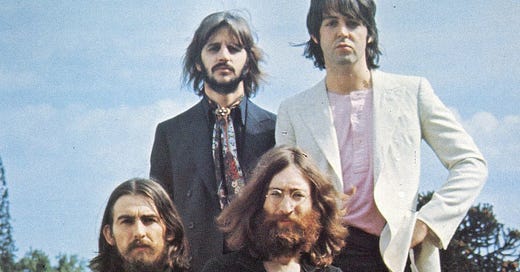


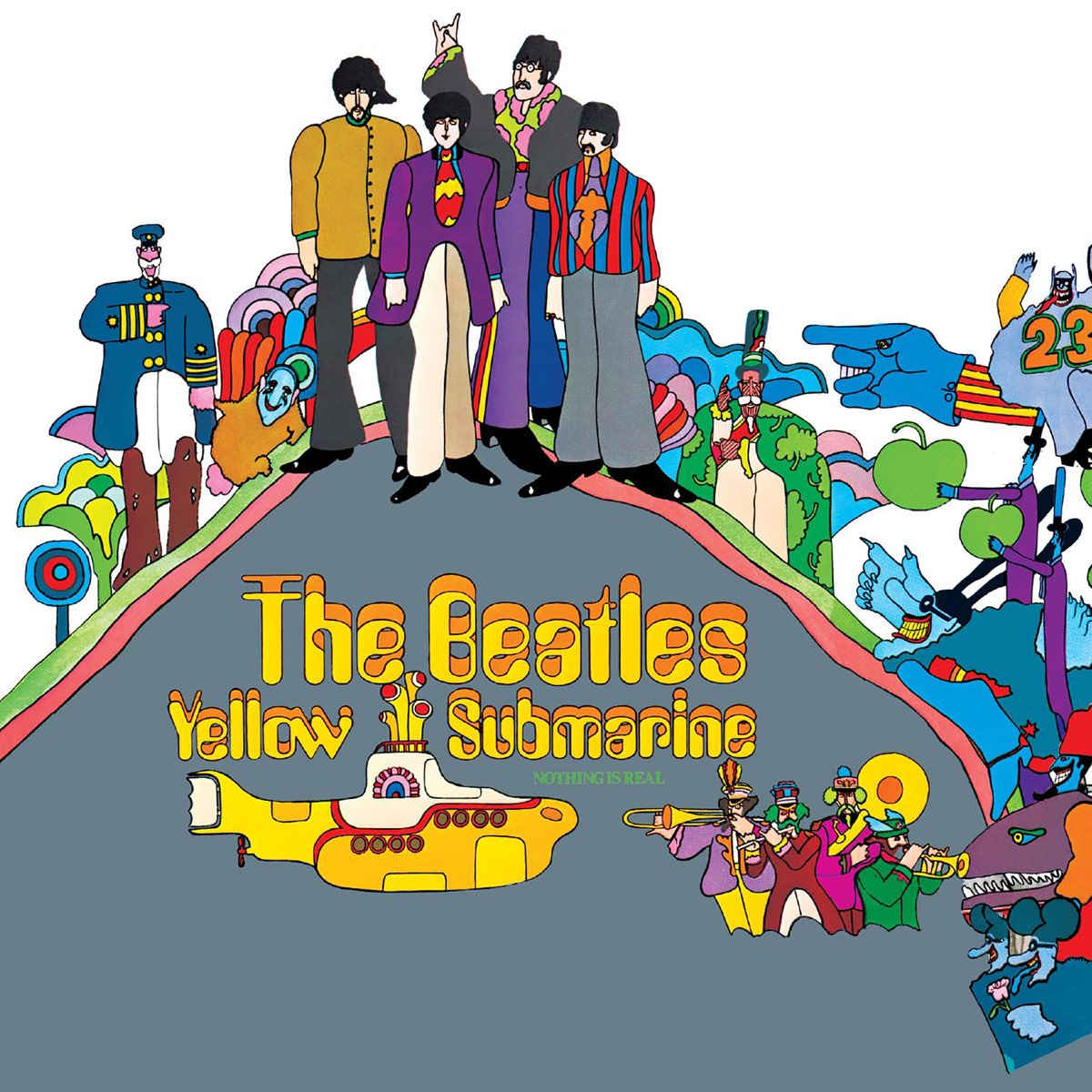
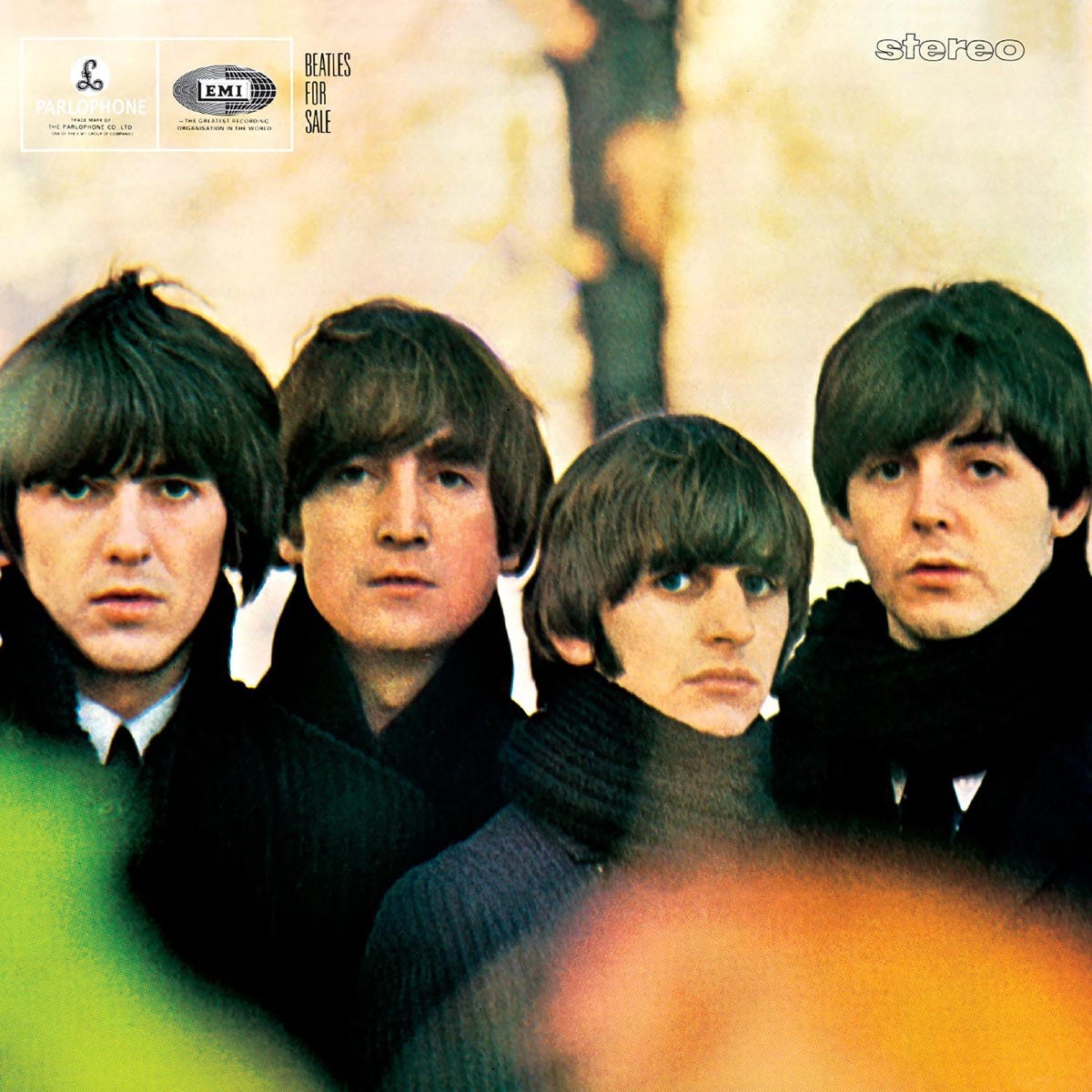
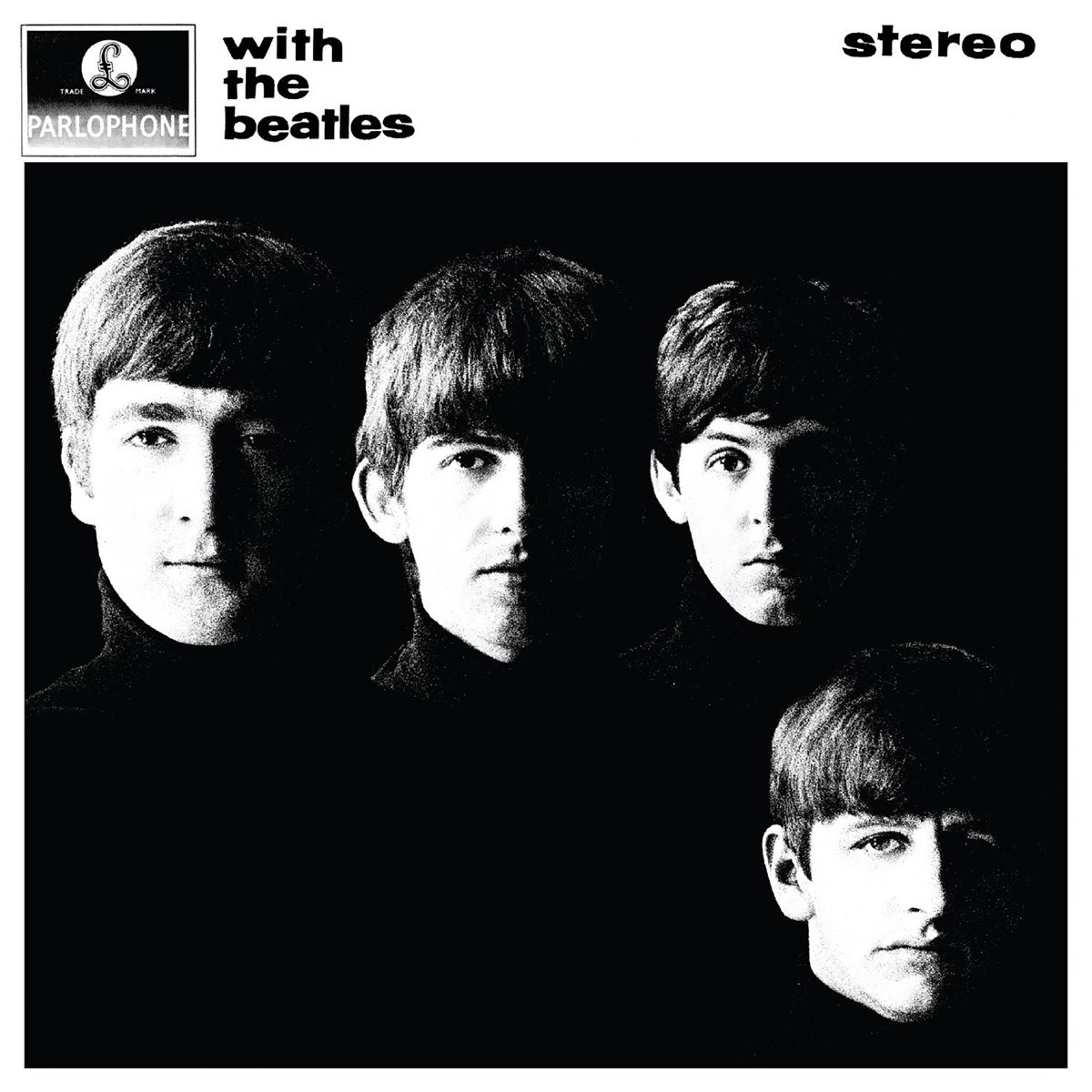
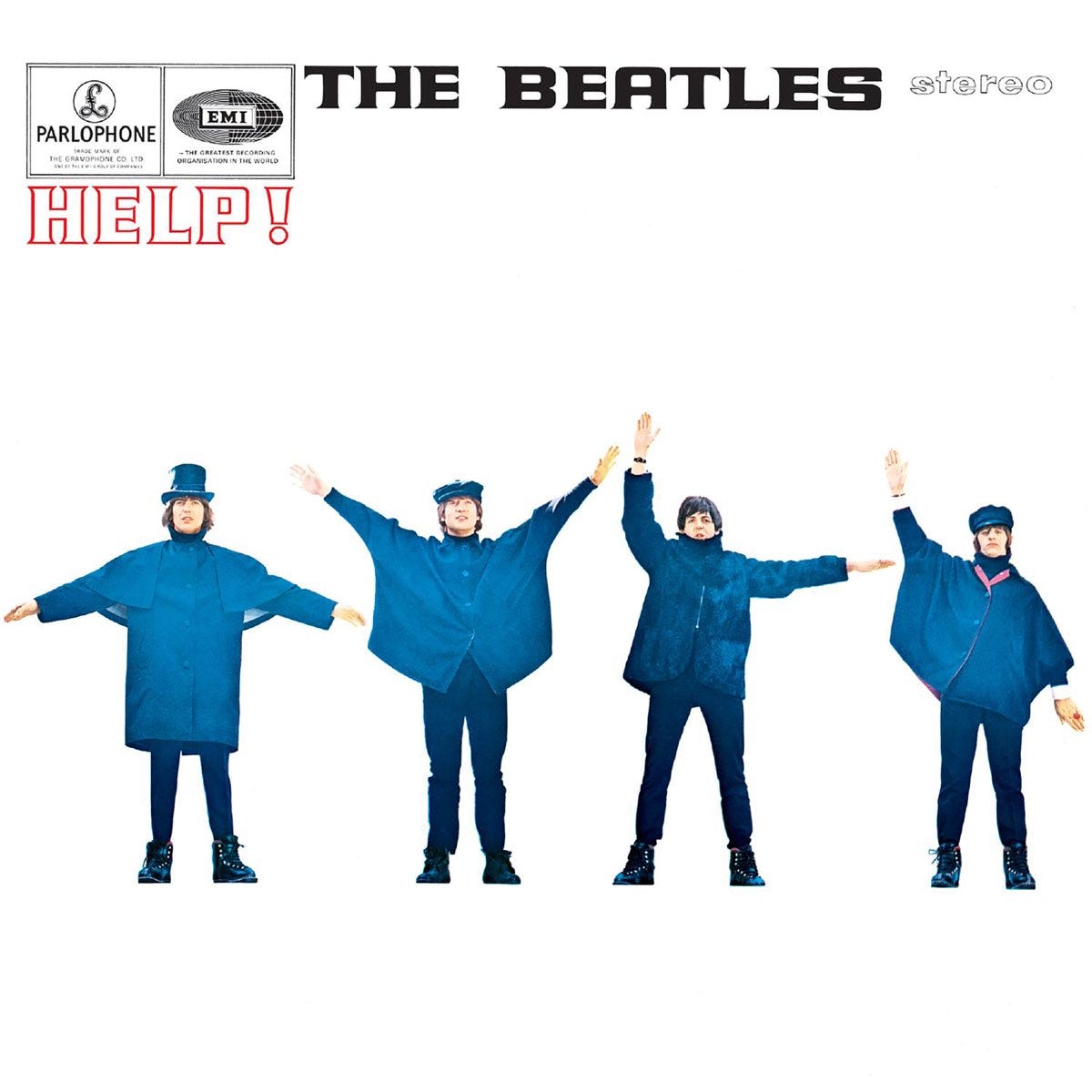
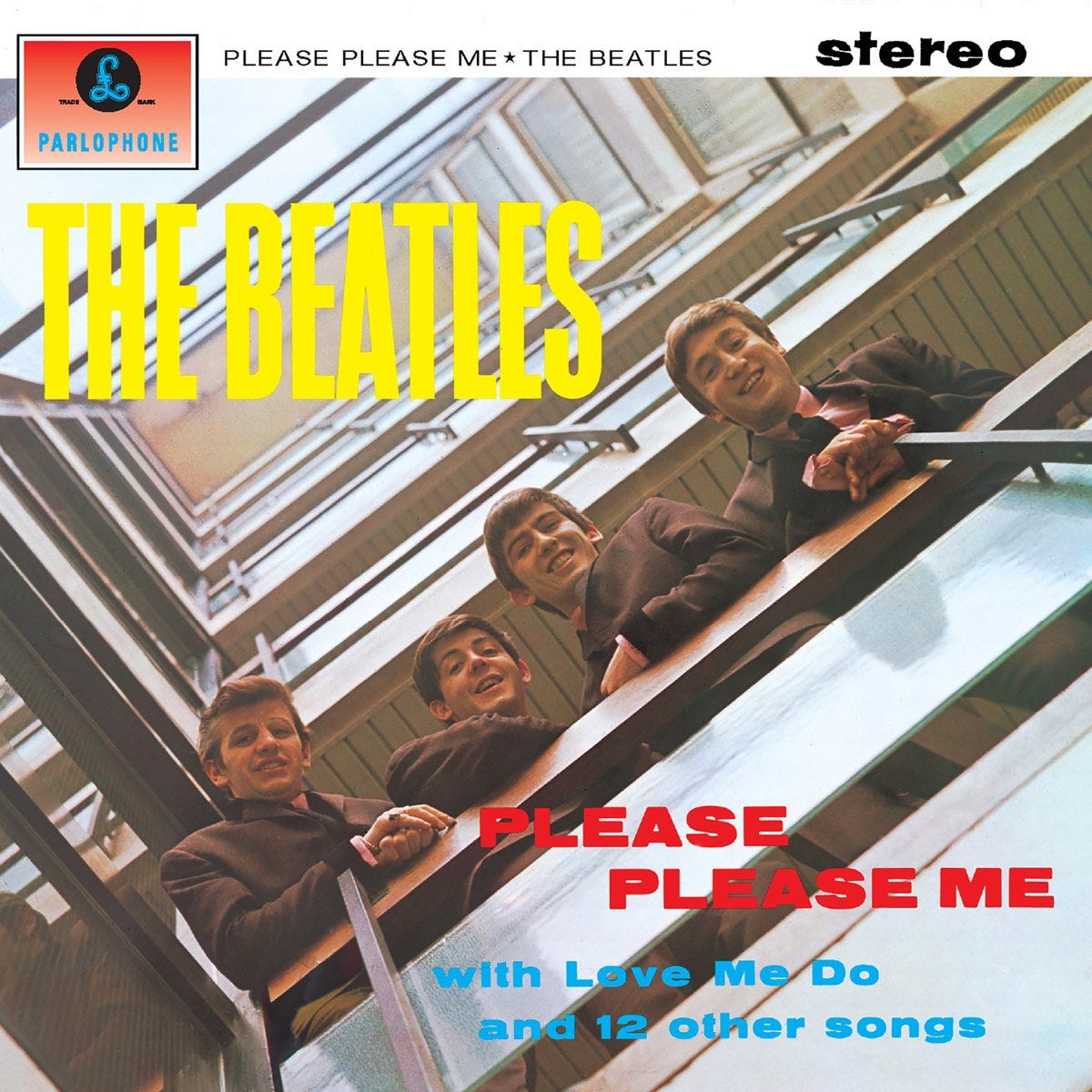
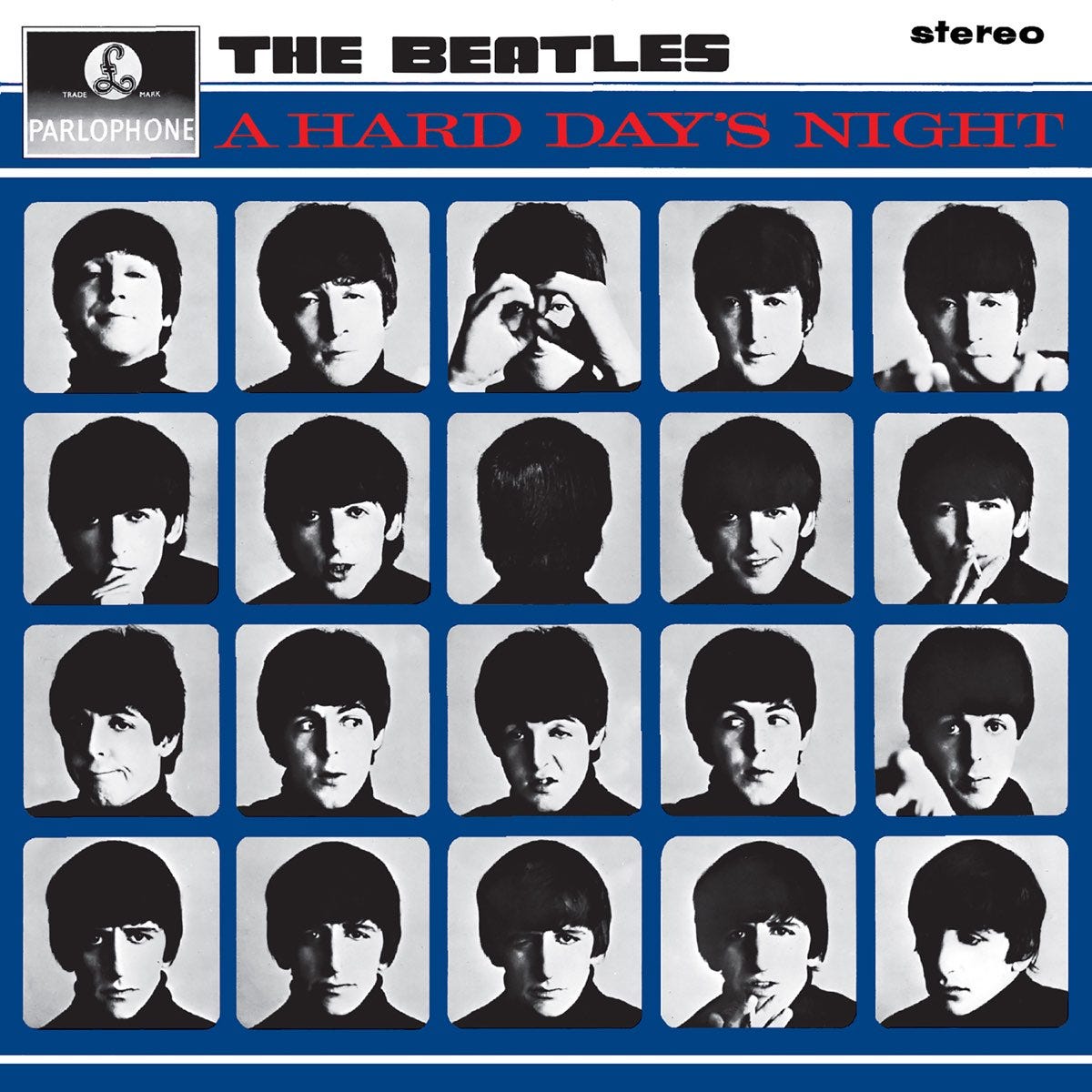
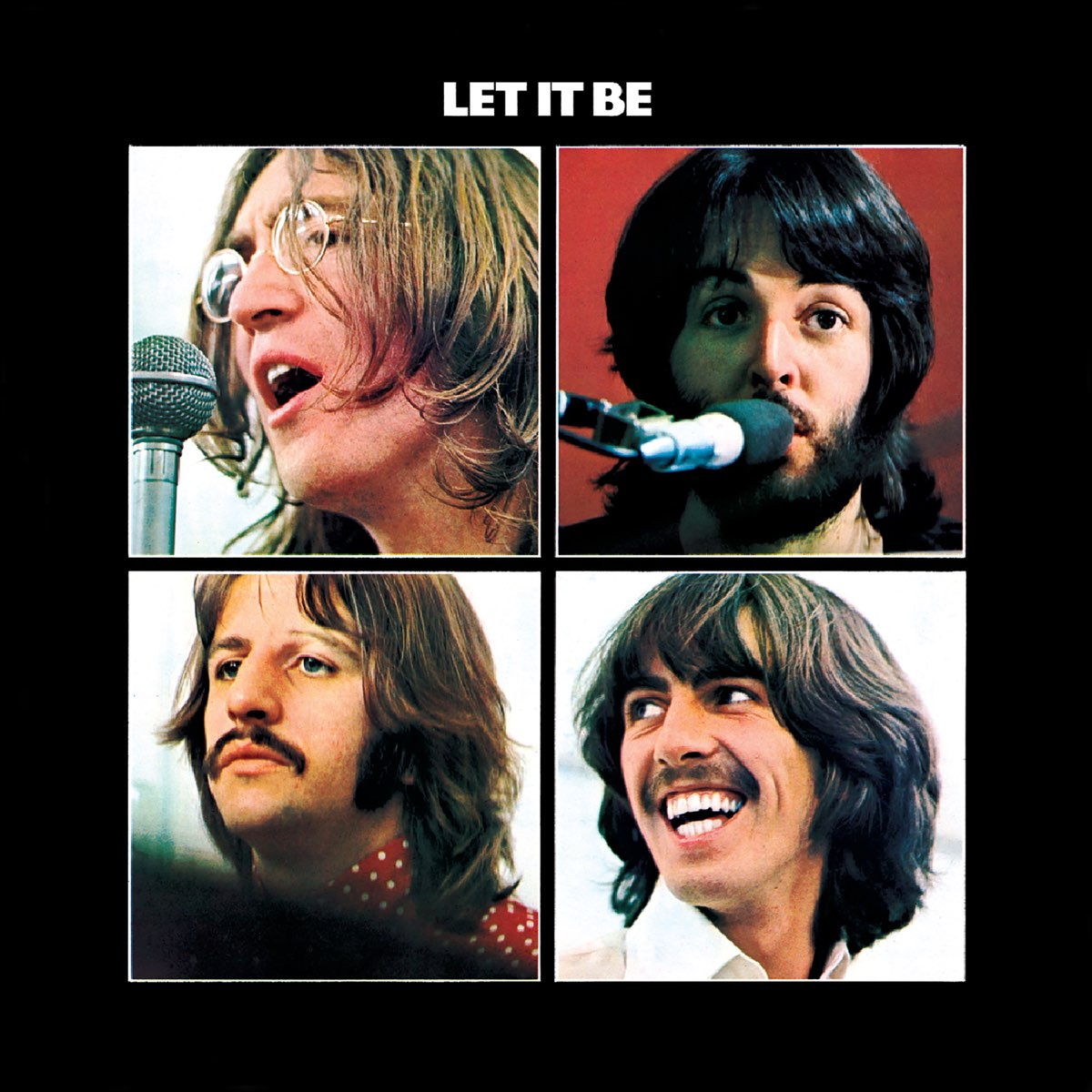
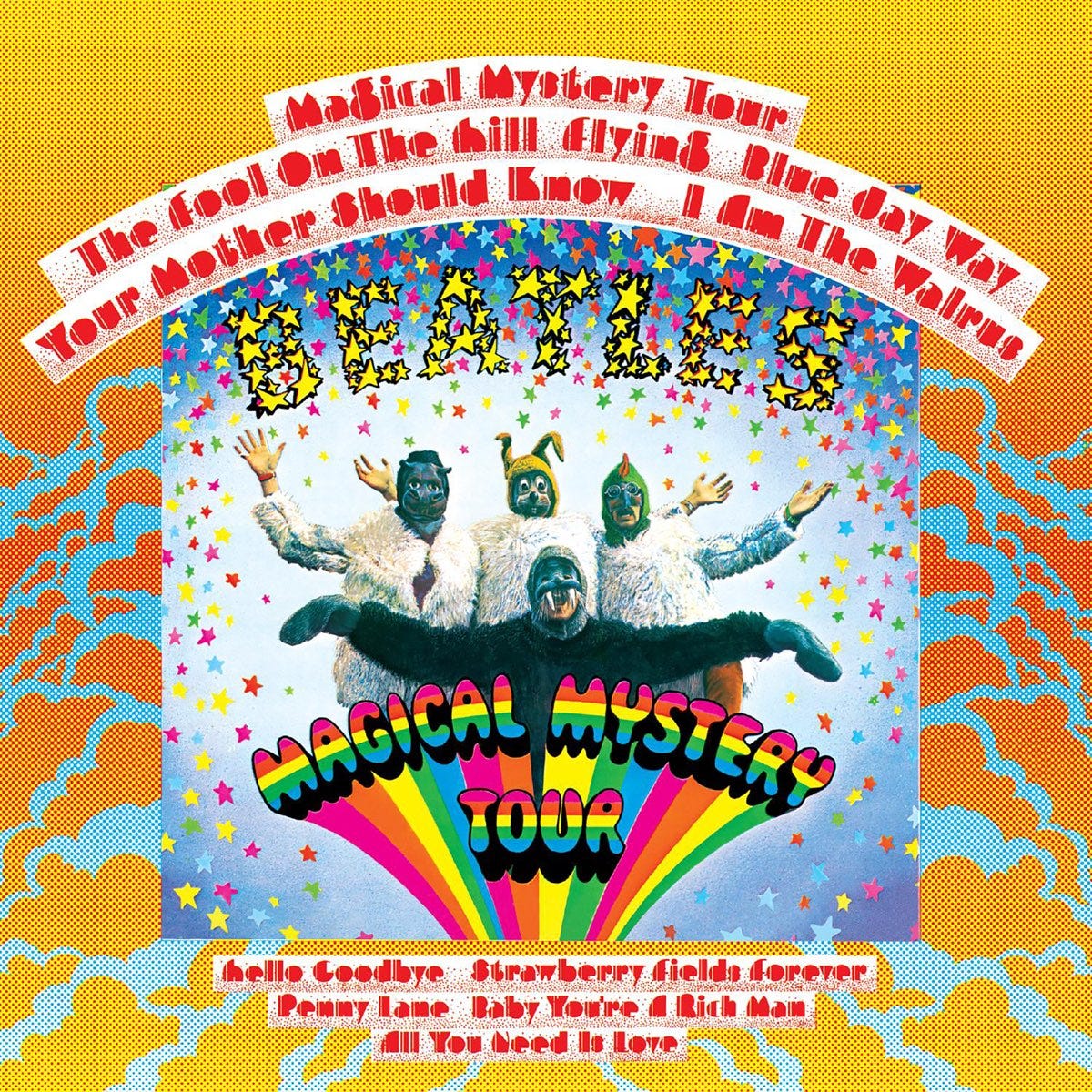

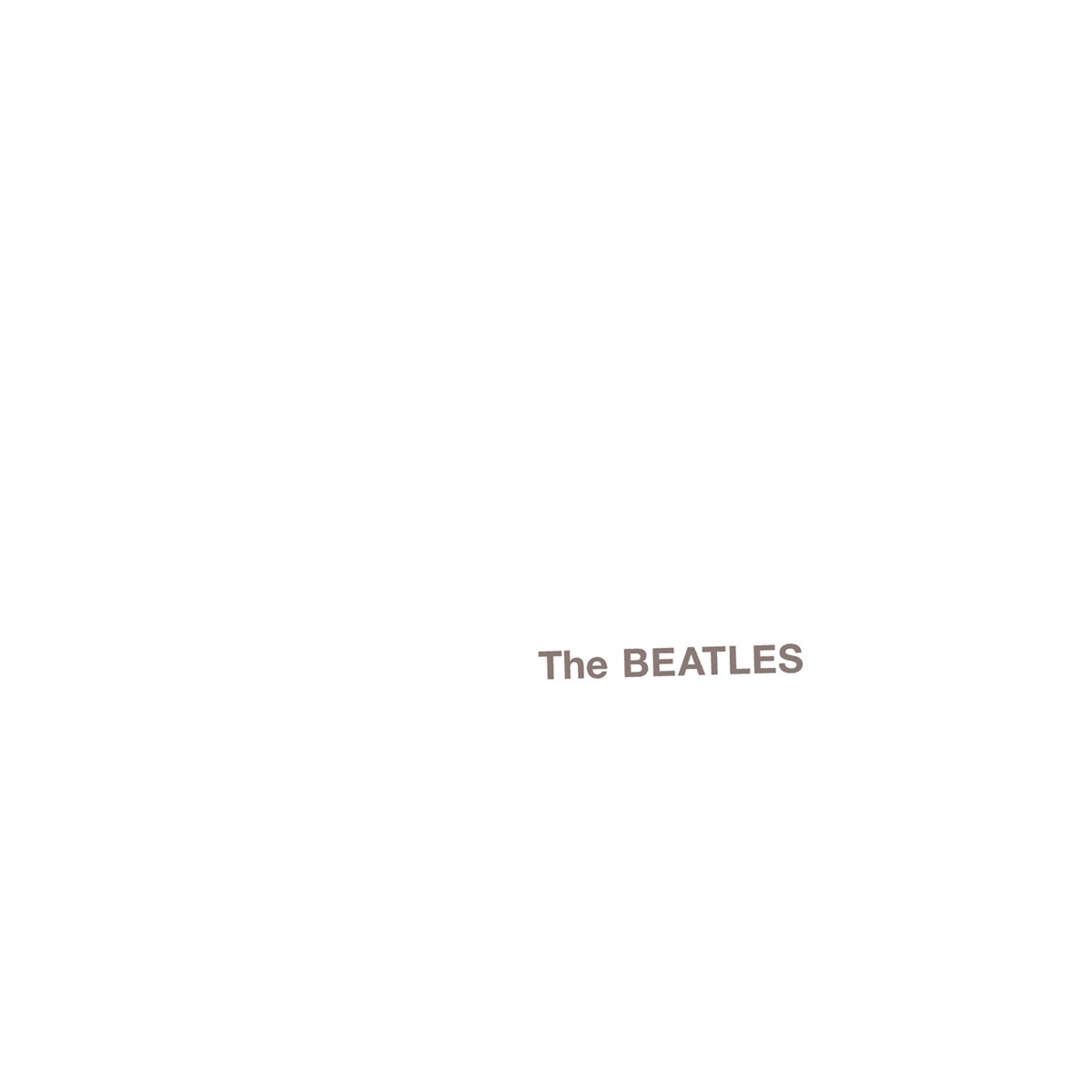
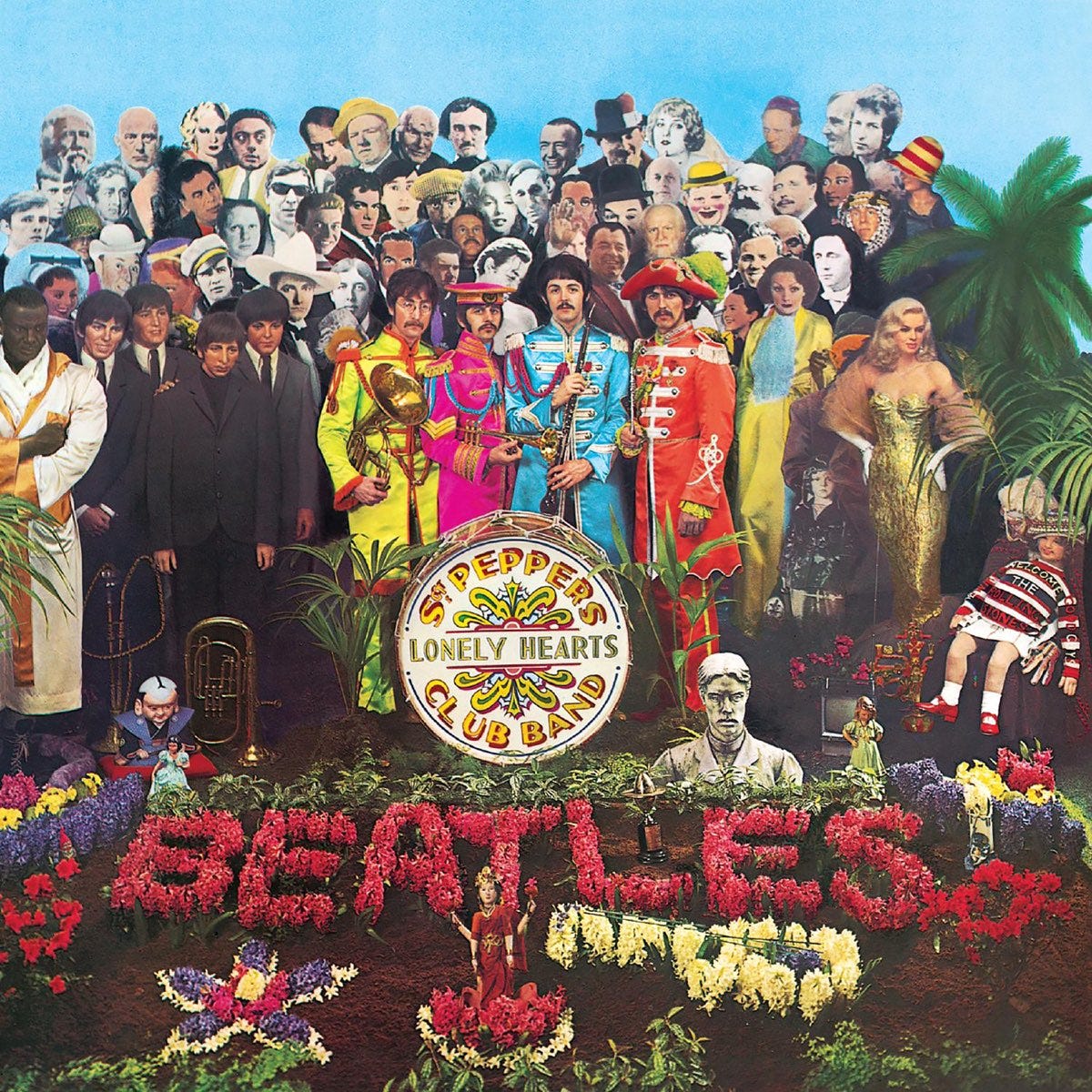
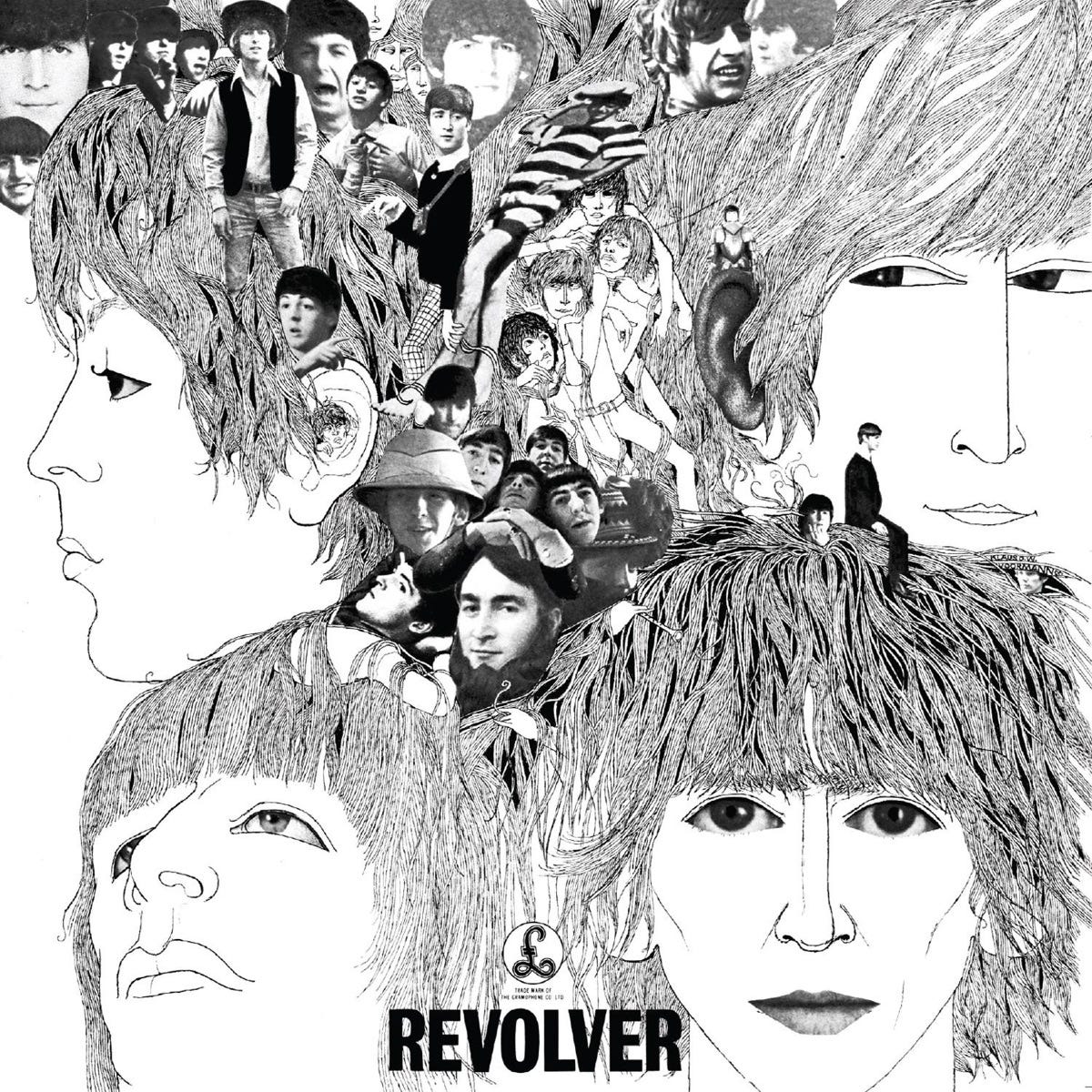
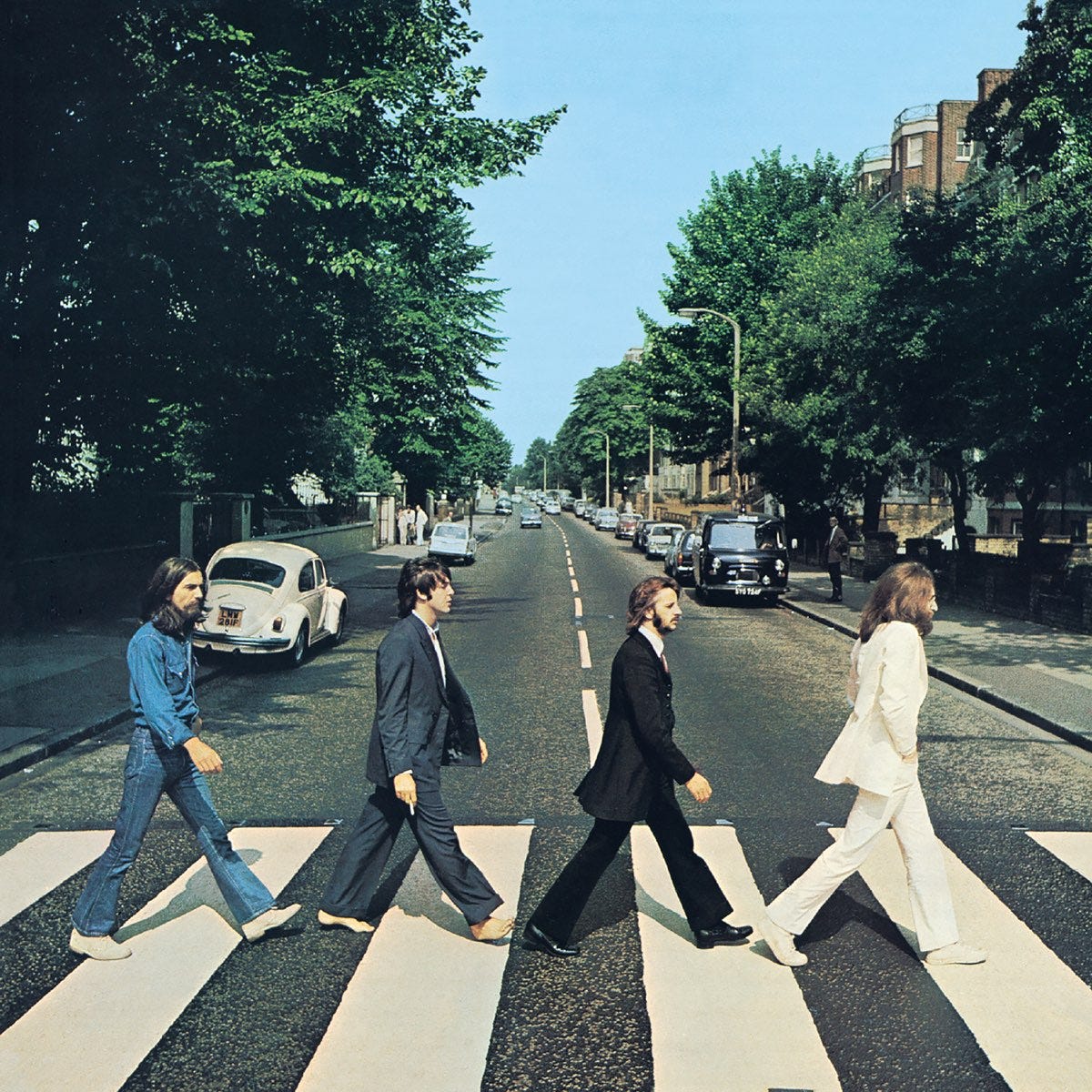
Me and my iPod are so happy to see you take this deep-dive!
Very well written Mr. PTK!